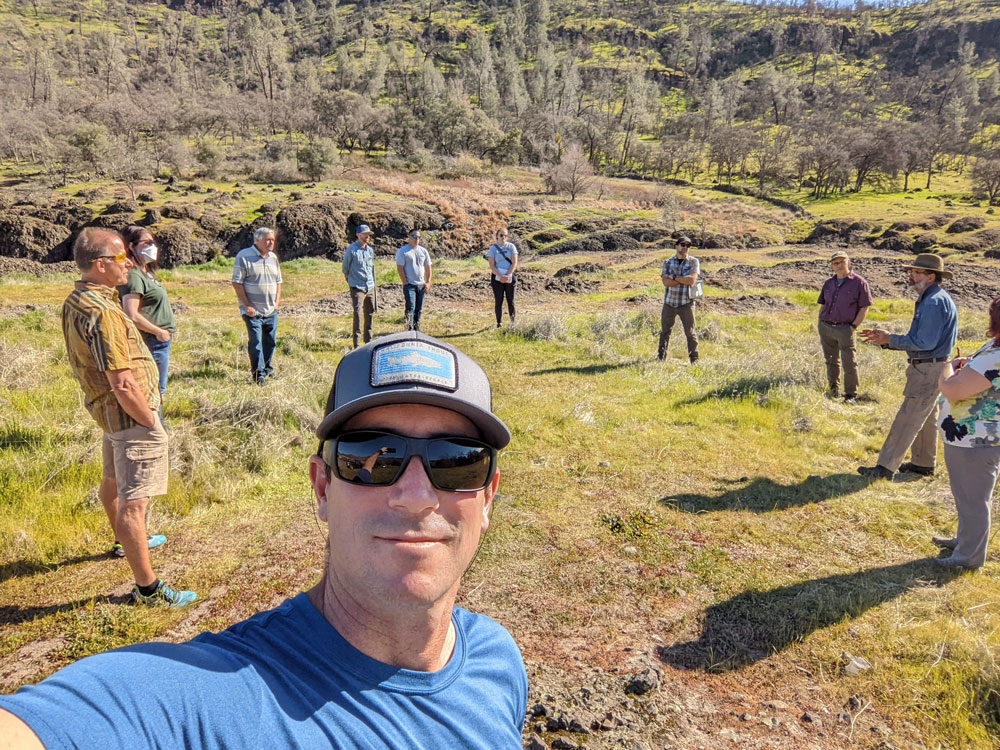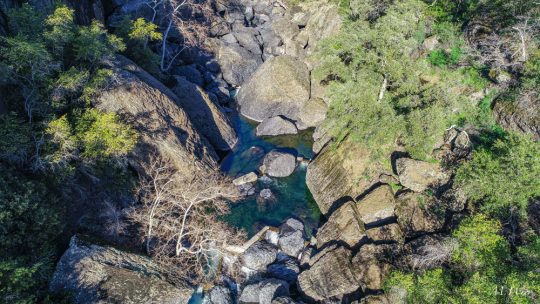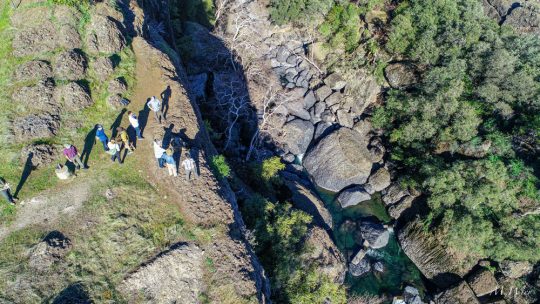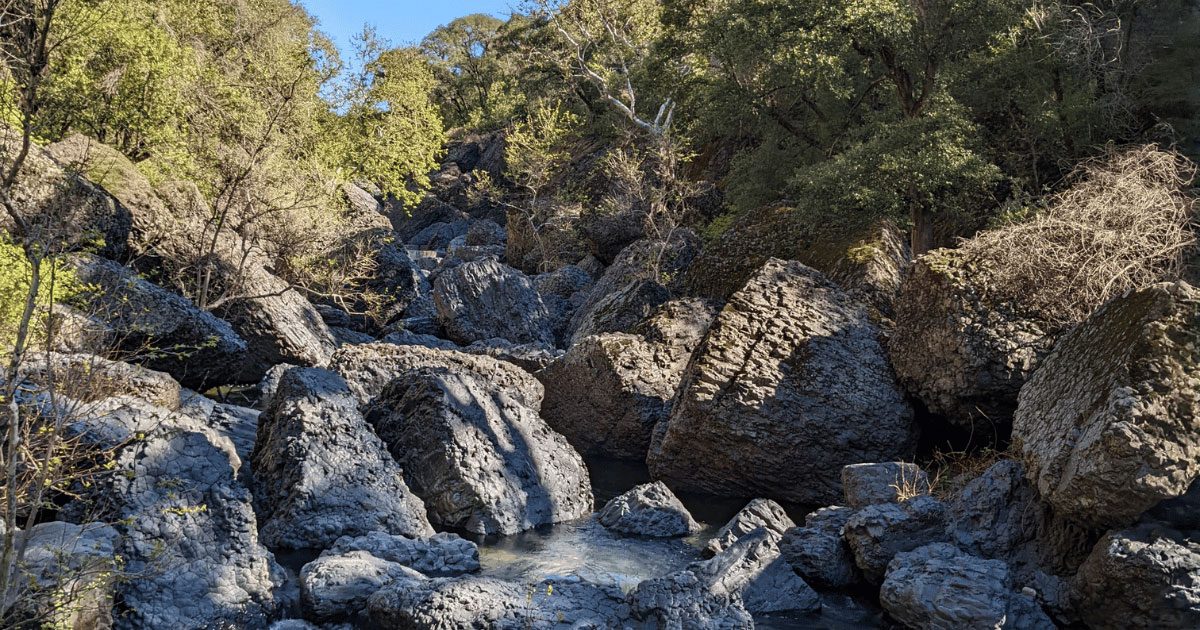Ótakim Séwi (Big Chico Creek) Fish Passage Project Recommended for Funding
A fish passage improvement project led by CalTrout and partners on Ótakim Séwi (Big Chico Creek), east of the City of Chico, has been recommended for funding from the National Oceanic and Atmospheric Administration (NOAA). The project is one of only 36 projects targeted by NOAA and was secured through a highly competitive grant application process.

CalTrout Regional Director Damon Goodman and the project working group on tour of site.
CalTrout and partners, including the city of Chico, Big Chico Creek Ecological Reserve, The Mechoopda Tribe, California Department of Fish and Wildlife, and others will be working to remove a fish passage barrier in Iron Canyon, restoring access to more than 8 miles of critically needed spawning and rearing habitat for steelhead and spring-run Chinook salmon in the upper reaches of the creek, including cold water habitat critical for climate resilience.
Kyle Henry, Mechoopda Indian Tribe Cultural Director and Tribal Historic Preservation Officer, describes more of the project: “We will be consulting with CalTrout at every stage of the project, and our Traditional Ecological Knowledge crew will get native plants established once the fish barriers are removed. We will also be involved in the educational aspect of the project. The end goal for us is to give our kids a sense of connection to this place and to our ancestors, who lived here and were stewards of the land and waters. Salmon have sustained our people for thousands of years and they are the reason we are alive today. They are a part of our DNA. Being able to see this project go through to help out the salmon and to see them thrive is paramount for the Tribe."
The Iron Canyon Fish Passage Project is serving as the flagship project for CalTrout’s new Mt. Lassen region. The region has a physical office in Chico and joins CalTrout’s six other regional offices across California, a legislative/policy office in Sacramento, and CalTrout headquarters in San Francisco. By positioning CalTrout in key geographical areas where wild fish influence the community, the organization is suited to implement large-scale conservation projects for the benefit of California’s fish, water, and people. In addition to the Iron Canyon project, CalTrout staff in the Mt. Lassen region will be leading habitat restoration and fish passage improvement projects in the Battle Creek watershed which historically supported winter-run Chinook salmon, now federally endangered.
“As a 20-year resident of Chico, when I heard CalTrout was expanding into this region and was taking on a fish passage project in Iron Canyon, I knew I had to be part of it,” said Holly Swan, new Project Manager for CalTrout’s Mt. Lassen region. “I am extremely thrilled to be partnering with the CSU, Chico Ecological Reserves on this project as a two-time Chico State alum. But most of all, I am excited to see the cascading ecological effects these migratory fish will bring to the entire ecosystem in Bidwell Park. These fish will provide subsistence to predators and scavengers, and as they reach the end of their life cycle, moving upstream to spawn in Big Chico Creek, they will also bring nutrients to plants throughout the park. Their migratory lifecycle will provide benefits across the entire landscape.”
Read the project’s press release.

Non-functioning fish ladder and rock barrier on Big Chico Creek. Photo by Mike Wier.

Project working group looking down at Iron Canyon. Photo by Mike Wier.






1 Comment
Fantastic video – educational, great video shots and great diagrams, excellent comments from multiple speakers, so professionally done. Bravo!